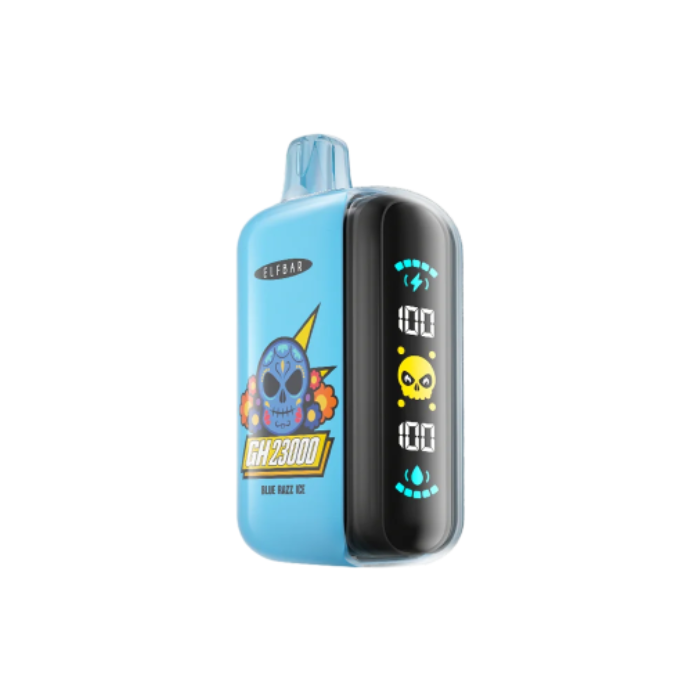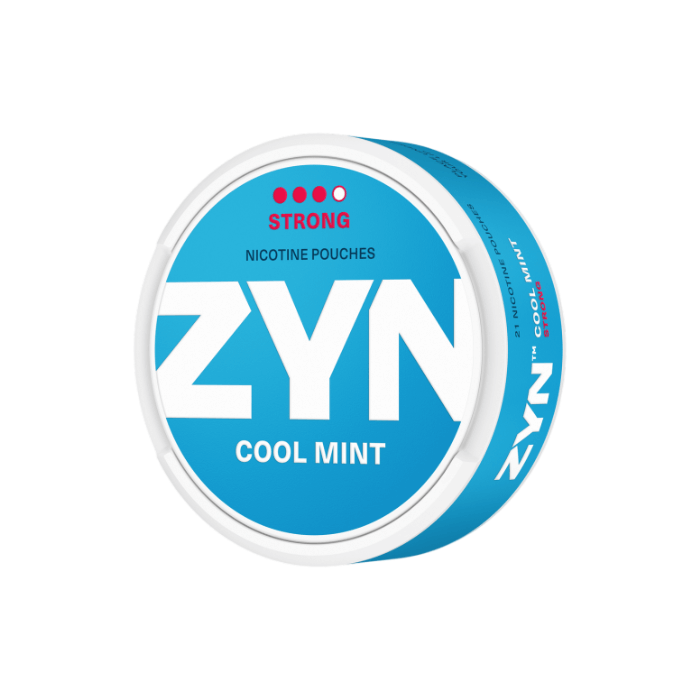Health, Nicotine Pouches
Can Nicotine Pouches Cause Anxiety?
If there’s one innovation in the nicotine industry that has taken the world by storm, that would be nicotine pouches. Nicotine pouches are smokeless nicotine products that are advertised to be less harmful than traditional tobacco products thanks to their tobacco-free nature.
Aside from being free from tobacco leaves, they are also discreet. You can essentially consume nicotine anytime, anywhere since they don’t produce any smoke or drip.
One thing about nicotine pouches, however, is they still contain nicotine. So, those who want to quit smoking but still crave nicotine can depend on the pouches to satisfy their cravings. Those with withdrawal symptoms can likewise rely on nicotine pouches to somehow negate the effects of trying to quit tobacco products. But, since they contain nicotine, can nicotine pouches cause anxiety like tobacco products often do? How do nicotine pouches respond to mental health issues?
Nicotine Pouches and Mental Health
In general, oral nicotine pouches have become a go-to source of nicotine for many smokers, users of smokeless tobacco products, and nicotine users due to their smokeless and drip-free nature. Additionally, they lack tobacco leaves, saving consumers from their harmful byproducts such as tar, carbon monoxide, and other carcinogens.
Many users also love nicotine pouches since they are available in many flavours.
You see, cigarettes and other tobacco products typically come in limited flavours. And despite adding flavourings to these products, the rich taste of tobacco leaves still comes on top, which some smokers and tobacco users don’t love.
Nicotine pouches, alternatively, come with flavours that can sometimes be fruity, sweet, or juicy. They may also come unflavoured, which can favour those who only want to feel the natural spiciness of nicotine. If you’re coming from tobacco products and long for the taste and scent of the tobacco leaves, some pouches boast a tobacco flavour to satisfy your cravings.
The most important aspect of pouches, however, is their nicotine content.
These nicotine products have a nicotine content that can somehow match the hits provided by Swedish snus, chewing tobacco, dipping tobacco, cigarettes, and other types of tobacco products. They also boast a varying nicotine concentration to somehow help nicotine users gradually reduce their nicotine intake until they no longer manifest symptoms of nicotine dependence or nicotine addiction.
Nicotine, unfortunately, may affect the mental health of the users, regardless of where it comes from.
The impact of nicotine on mental health
To better understand the impact of nicotine on mental health, you must know how the stimulant affects the body in general, regardless of its source.
Nicotine is a substance you can find in all tobacco products, nicotine products, and e-cigarette liquids. It is known to be a highly addictive chemical that’s naturally present in tobacco leaves. Advancements in technology have allowed laboratories to produce nicotine synthetically.
Since nicotine is naturally present in tobacco leaves, all tobacco products you know today are expected to boast nicotine. They include the combustible ones like cigarettes and cigars as well as the smokeless ones like snus, chewing tobacco, and dip tobacco.
Synthetically made nicotine can then be found in e-cigarette liquids, nicotine pouches, and even tools used for nicotine replacement therapy or NRT.
As you consume products with nicotine, the substance is expected to enter the body. Once it reaches the brain, the highly addictive stimulant generates a temporary feeling of well-being and relaxation. It then increases the heart rate as well as the amount of oxygen your heart maximizes. It also causes a surge of endorphins, which are chemicals that relieve stress and pain and improve mood.
The effects of nicotine don’t stop there.
Upon reaching the brain, it increases your levels of dopamine, a neurotransmitter that generates feelings of pleasure and reward. It, unfortunately, reinforces the need to take nicotine over and over again, until you depend on nicotine products heavily and eventually find it difficult to quit nicotine.
Using nicotine products like pouches over and over again can slowly alter the way your brain works, particularly in terms of your self-control, stress, and learning. When you don’t smoke or use nicotine products in a given time, addiction and withdrawal symptoms may occur.
How about your mental health?
An article from Truth Initiative has found that consuming nicotine through vaping e-cigarettes can indeed affect your mental health in different ways.
Using nicotine, for one, may intensify anxiety and depression symptoms as well as increase stress levels. Additionally, users of nicotine, particularly e-cigarettes, have double the odds of being clinically diagnosed with depression as opposed to those who have never used nicotine products.
The article has also pointed out that e-cigarette use can worsen depression symptoms, bring out higher depressive symptoms including feeling sad or having crying spells, and lead to poor mental health.
Aside from anxiety and depression, vaping is linked to having higher levels of ADHD symptoms. Adults who vape can likewise have a higher chance of cognitive complaints, which are related to serious difficulty concentrating, remembering, or making decisions.
Nicotine pouches and anxiety: examining the scientific evidence
The previous part of the blog talked about the effects of vaping products and their nicotine content on one’s mental health. Now, it’s time to talk about nicotine pouches.
Nicotine pouches are now becoming more popular than vaping products as well as other nicotine products since they are smokeless and drip-free, making them discreet. They also present fewer health risks, which most nicotine pouch brands would say and advertise. But do they really provide nicotine with fewer health effects on your body?
Nicotine consumption through nicotine pouches is truly less harmful than tobacco products since they don’t possess any tobacco leaves. They also don’t require combustion, which somehow turns tobacco leaves more dangerous due to the harmful byproducts they release into the air.
Nevertheless, consuming nicotine pouches may still present a number of health risks to various parts of your body. On your gums, for instance, nicotine pouches may somehow reduce the blood supply to your gums. And when you take pouches excessively, it can lead to receding gums and nicotine burn.
In the short term, taking nicotine pouches won’t cause any cardiovascular diseases. Long-term use of pouches, unfortunately, may cause extensive damage to the cardiovascular system, which can take years to heal. Nicotine from the pouches may likewise cause a vasoconstrictor effect, which thins your arteries and causes chronic obstructive pulmonary disease or COPD and cardiovascular diseases.
As for your brain, nicotine from the pouches may gradually affect its core functions and rewire your neural pathways. Nicotine pouches could make you happy, active, and alert in the short term. In the long term, they can lead to nicotine addiction and dependence. And once you decide to withdraw from nicotine pouches, it can lead to brain fog, irritability, frustration, anxiety, and depression.
To date, there’s no available research on the relationship between nicotine pouches and anxiety. The only thing that exists today is scientific evidence suggesting that nicotine is highly linked to several mental health conditions, including anxiety disorders. It is, however, still unknown whether nicotine can directly cause anxiety as well as depression.
Based on statistical research in 2019 regarding adult tobacco users in the US, 45% of all tobacco users experienced extreme anxiety, while 30% had symptoms of mild anxiety. Another study finds that smokers have a higher risk of developing post-traumatic stress disorder after experiencing a traumatic event. It has also been revealed that teens who smoke are more likely to develop panic disorders, especially during the early phases of adulthood.
Nicotine exposure, based on several studies, can then either relieve the stress and anxiety symptoms or elevate them further. While the stimulant has anxiolytic and antidepressant properties, which alleviate stress and anxiety symptoms, exposure to nicotine for a long time may lead to dependence. Nicotine dependence can subsequently cause heightened anxiety levels during nicotine withdrawal.
Other potential mental health risks associated with nicotine pouches
Nicotine, as mentioned earlier, triggers the release of feel-good neurotransmitters, which can calm you down. This effect, unfortunately, doesn’t last for a long time. At best, nicotine’s effect on your body only lasts for a few hours.
So, nicotine users would have to consume another nicotine pouch or use whatever tobacco or nicotine products they have just to get their much-needed relaxing effects. Without doing so, they’ll start to feel nicotine withdrawal symptoms and side effects. One of these effects is to make stress symptoms, irritability, and anxiety more intense. Consuming nicotine products over and over again will eventually lead to nicotine dependence and nicotine addiction.
Now, as you consume nicotine pouches, their nicotine content can do the following things:
- Stimulate the adrenal glands, releasing epinephrine (adrenaline) that is responsible for increasing your heart rate, blood pressure, and respiration
- Activate the reward centres of the brain, regulating behaviour and feelings of pleasure
As the nicotine enters your bloodstream, it travels to your brain. There, it latches onto nicotinic acetylcholine receptors ornAChRs, activating a reward response by releasing neurotransmitters such as dopamine, serotonin, norepinephrine, acetylcholine, gamma-aminobutyric acid, and glutamate.
These neurotransmitters then affect your behaviour and cognitive function, triggering feelings of pleasure, increased focus, boosted memory, and a sense of calmness.
And since nicotine pouches contain nicotine, they are expected to pose various mental health risks. These mental health risks include:
- Anxiety and depression: While studies regarding pouches and their mental health effects are scarce, these products still contain nicotine, a stimulant that has been proven to be closely related to anxiety and depression. Nicotine, as discussed, causes dopamine release, which is the brain’s feel-good chemical that provides a sense of well-being. This effect, however, is temporary. So, as pouch users experience a rebound effect, it only leads to feeling anxious or depressed. It can then perpetuate ongoing mental health problems, causing chronic anxiety and depression.
- Cognitive impairment: Nicotine is a stimulant naturally found in tobacco leaves. As you consume nicotine pouches, this chemical can impact your brain function, particularly in regions related to memory, attention, and learning. Excessive consumption of nicotine through nicotine pouches can, unfortunately, impair cognitive abilities, hindering concentration and memory retention. For adolescents and young adults whose brains are still developing, these effects can be particularly detrimental and have long-term consequences on academic and professional performance.
- Mood swings and irritability: Users of nicotine products such as nicotine pouches may experience ups and downs, which are connected to mood swings. They may find themselves feeling restless, irritable, or agitated, especially when they don’t consume nicotine or satisfy their nicotine cravings. It then pushes them to constantly use nicotine products to ensure a sense of normalcy. Their rollercoaster of emotions can, however, interfere with daily functioning and strain relationships.
The highly addictive chemical nicotine, which you can get from nicotine pouches, can cause a number of mental health risks that can ruin your overall well-being in the long run. If you don’t want this to happen, make sure to regulate your nicotine intake until you no longer depend on it.
Who Is at Risk of Anxiety from Nicotine Pouches?
The popularity of nicotine pouches as a smokeless, tobacco-free alternative to traditional cigarettes, chewing tobacco, and other tobacco products has soared significantly over the past few years. Brands even advertised these products further, enticing occasional smokers, vape users, and even snus users to switch over the pouches to effectively satisfy their nicotine cravings.
Nicotine pouches, however, still contain nicotine, an addictive substance that can affect the body and mind in a lot of ways.
One of the lesser-discussed concerns around nicotine pouch use is its potential link to anxiety. Some users have reported that using nicotine pouches can lead to temporary feelings of relaxation or focus, while others experience anxiety symptoms like restlessness, irritability, and heightened nervousness. These side effects are typically more pronounced in individuals who are already vulnerable to anxiety disorders or are sensitive to stimulants.
There’s one question though that you may be asking about nicotine pouches: Who is really at risk of experiencing anxiety symptoms and side effects from consuming nicotine pouches?
Demographics and risk factors
The number of brands offering nicotine pouches around the world has increased significantly over the past few years. ZYN nicotine pouches, for instance, have existed for a long time, catering to the preferred tastes of different nicotine and tobacco users.
In fact, ZYN pouches have been one of the top pouches you can buy in the market today, wherever you are in the world. They are so effective in promoting their nicotine products as a less harmful way of enjoying nicotine as well as a more flavourful way of getting the feel-good effects of nicotine.
Native Smokes 4 Less currently offer ZYN nicotine pouches, as well as pouches from other brands. Feel free to visit our online store, browse through our product catalogue, and check out those that you like.
Despite being advertised as a safer alternative to smoking and tobacco consumption, pouches are not without mental health implications, especially for certain groups. Anxiety, as mentioned, is one of the lesser-known but potentially significant side effects related to nicotine use. The likelihood of experiencing it then varies across demographic and lifestyle factors.
As of now, the following groups of people are at risk of experiencing anxiety out of nicotine pouches.
- Young people and teenagers: They are known to be the most vulnerable demographic in terms of nicotine pouch use and experiencing anxiety, which have also been proven by tons of data. Their brains are still in a critical stage of development. Hence, being exposed to nicotine at a young age may only interfere with brain chemistry, particularly in areas responsible for emotion regulation and stress response. They may also be more susceptible to anxiety and mood disorders.
- Individuals with anxiety or mood disorders: Those who have a personal or family history of anxiety or mood disorders may also be considered a high-risk group. Consuming nicotine pouches, even at low concentrations, may already increase their heart rate and blood pressure, which triggers physical sensations that resemble anxiety. Those already predisposed to panic attacks or generalized anxiety may experience more intense feelings of unease or fear. Frequent use of pouches will only lead to more mental health challenges.
- People who consume other substances: People who consume other stimulants or substances alongside nicotine pouches may experience the side effects of anxiety. You see, caffeine or energy drinks have stimulants that can elevate adrenaline, increase jitteriness, and lead to heightened nervous system arousal, all of which can trigger or worsen anxiety. If you consume pouches and at the same time drink these beverages, the side effects of anxiety could kick in at any time.
- Previous users of tobacco products: Previous users of tobacco and nicotine products are at risk of anxiety when using nicotine pouches since they still contain nicotine. When they consume nicotine pouches, their nicotine content can trigger symptoms such as increased heart rate, restlessness, and nervousness. And since they have a high nicotine tolerance, they would naturally opt for stronger pouches, which could lead to overstimulation and anxiety if their nicotine dose becomes too high or if they consume these products too frequently.
The risk factors accompanying nicotine pouch consumption include the following:
- Nicotine dependence and addiction: Nicotine pouches contain high levels of nicotine, which can quickly lead to dependence if they are consumed regularly. Users typically find themselves needing more frequent or stronger doses of nicotine to achieve the same effects, generating a cycle that’s difficult to break. It can also lead to withdrawal symptoms such as irritability, restlessness, headaches, and anxiety if users try to cut back.
- Nicotine overdose: New users of those who are unfamiliar with the effects of nicotine might consume too many nicotine pouches. And if they opted for the stronger ones, they could experience symptoms of nicotine overdose, which include nausea, dizziness, vomiting, sweating, headaches, heart rhythm issues, or fainting. This risk increases when using multiple nicotine pouches within a short time frame.
- Anxiety and mental health effects: While some people report temporary calming effects of nicotine pouches, their nicotine content is still a stimulant that can potentially worsen anxiety, trigger panic attacks, or increase nervousness. Individuals with a history of mental health issues may be more vulnerable. Fluctuating levels of nicotine in the body can likewise affect mood and lead to emotional instability.
- Other health issues: The nicotine content of nicotine pouches can stimulate the cardiovascular system, increasing one’s heart rate and blood pressure. Over time, this can put extra strain on the heart and could be risky for those with pre-existing heart conditions. Even healthy users may feel dizziness, palpitations, or a racing heart after consuming strong nicotine pouches. Aside from cardiovascular health risks, nicotine pouches can likewise cause oral irritation and mouth issues. They are due to their nicotine content, as well as their flavourings and pH modifiers.
Nicotine pouches have truly become a popular alternative to tobacco products, pushing the tobacco market and the brands to make their own take on these products. They have also, however, become a growing concern, particularly among young adults, those with a history of tobacco product use, and many more. Understanding the demographics and risk factors associated with their use is crucial for developing effective prevention and intervention strategies.
Other health conditions that may interact with nicotine pouches
Nicotine pouches may be smokeless and tobacco-free, but they are not risk-free, especially for individuals with pre-existing health conditions.
One major concern is for people with cardiovascular disease. Nicotine can easily elevate one’s blood pressure and heart rate, adding more stress to the heart. It can be particularly dangerous for those with hypertension, arrhythmias, or a history of heart attacks or strokes. Even seemingly healthy individuals with undiagnosed heart conditions may experience complications when using strong or high-strength nicotine pouches.
Respiratory conditions like asthma or COPD may also be indirectly affected by nicotine use.
Although nicotine pouches don’t involve inhalation, their accompanying highly addictive stimulant can still act on the autonomic nervous system, which potentially triggers inflammation or increases the likelihood of respiratory flare-ups in sensitive individuals. Moreover, nicotine may increase anxiety and breathing irregularities, which can be problematic for those who are dealing with lung function issues.
People with gastrointestinal problems like acid reflux or ulcers may also experience heightened symptoms. Nicotine can relax the lower esophageal sphincter, which increases the risk of acid reflux or worsening existing digestive conditions.
Similarly, individuals with mental health disorders, especially anxiety or panic disorders, may find that nicotine worsens their symptoms or interacts poorly with psychiatric medications.
Alternatives to Nicotine Pouches for Stress Relief
You might be opting for nicotine pouches as a way to stress relief, especially since their nicotine content can somehow activate the feel-good mechanism of your brain. While nicotine pouches can truly provide you with short-term calming effects, they only lead to a cycle of nicotine dependence, which worsens your anxiety and other mental health issues over time.
One known effective alternative to nicotine pouches is to engage in physical activities like regular exercise. Walking, yoga, or cycling are some of the most popular exercises you can do to help you release endorphins, reduce cortisol levels, and improve mood. Even light movement throughout the day can already keep you calm and serve as a healthy outlet for your stress.
Mindfulness practices like meditation or deep breathing exercises can also help you manage stress naturally. They essentially train your mind to stay in the present moment, alleviate overthinking, and regulate your body’s stress response. You can also engage in hobbies or creative activities as well as spend time in nature to manage your stress without using any substances.
There are only some alternatives to nicotine pouches for stress relief. You can continue reading to learn more about healthy coping mechanisms for your anxiety and depression.
Healthy coping mechanisms for anxiety
Stress is your body’s natural response to real or perceived threats. It manifests sometimes as anxiety, a common and inevitable experience for everyone. However, when the stress response becomes persistent, anxiety may evolve from an occasional symptom into a chronic condition.
Anxiety disorder is generally known as an umbrella term that encompasses a wide range of mental health conditions, each exhibiting unique manifestations and triggers.
Even though professional help may be needed to manage chronic or intense anxiety, it’s important that you develop and carry out healthy coping mechanisms to mitigate its impact on your well-being. Some healthy coping mechanisms you can do to deal with your anxiety include the following:
- Identify triggers: One of the things you can do with your anxiety is to know its triggers. These triggers could be situational (like deadlines or social situations), emotional (such as criticism), or physical (like caffeine or lack of sleep). You can keep a journal or use an anxiety-tracking app to help you identify patterns in your thoughts, behaviours, and physical reactions. Once you’ve pinpointed your triggers, you can develop a plan to manage or avoid them more effectively.
- Keep physically active: Exercise is one of the most potent tools you can use to reduce anxiety. When you exercise and become active, you can help boost the production of endorphins and serotonin in your body, which are known for alleviating stress. You can do this by walking, swimming, dancing, yoga, or doing strength training, which are all effective in diverting your attention from anxious thoughts while enhancing your physical well-being.
- Eat healthy foods: Your diet can shape your emotional well-being. If you consume diets rich in processed foods, sugar, and caffeine, then they will only elevate your anxiety symptoms since they are known for disrupting energy levels and blood sugar stability. In contrast, adopting a balanced diet that emphasizes fruits, vegetables, whole grains, lean proteins, and omega-3 fatty acids can foster emotional resilience. Proper hydration is also crucial to ensure mood and cognitive function.
- Avoid alcohol and recreational drugs: While alcohol and recreational drugs may provide temporary relief from stress, they can actually trigger anxiety in the long run. These substances disrupt brain chemistry and interfere with the body’s natural ability to regulate mood. Additionally, they can lead to dependence or contribute to mental health disorders. Reducing or avoiding substance use is crucial in maintaining stable anxiety symptoms.
- Reduce or quit using nicotine: Nicotine can elevate heart rate and blood pressure, which may mimic anxiety symptoms. Consequently, many individuals resort to smoking or nicotine pouches as a quick means to manage stress. However, this approach often proves counterproductive in the long run, leading to dependency and withdrawal-related anxiety. Reducing or quitting nicotine can significantly enhance mood stability and overall mental well-being.
- Socialize: Connecting with others can somehow reduce feelings of isolation and provide emotional support. Talking to a trusted friend, joining a social group, or participating in community activities can uplift your mood and shift your focus from internal worries to external engagement. Engaging in meaningful social interactions can boost oxytocin levels, promoting feelings of calm and safety.
- Get enough sleep: Sleep and anxiety are surprisingly intricately connected. Poor sleep can lead to anxiety, while anxiety can disrupt sleep patterns. You should strive for 7 to 9 hours of high-quality sleep each night and maintain a consistent sleep schedule to help manage your stress. Additionally, before bed, you should avoid using your phone or taking products with stimulants. You must also establish a calming pre-sleep routine, such as reading or taking a warm bath. Now, if racing thoughts keep you awake, mindfulness or journaling before bed can help soothe your mind.
- Use stress management or relaxation techniques: Practices such as deep breathing, meditation, progressive muscle relaxation, and mindfulness can help calm your nervous system without relying on nicotine pouches. These techniques can slow your heart rate, lower blood pressure, and enhance mental clarity. Over time, consistent practice can retrain your body to respond to stress more effectively and more calmly.
Seeking professional help for anxiety and depression
While self-help strategies can be beneficial, some individuals may find their anxiety or depression too overwhelming to manage on their own. Seeking professional help is not a sign of weakness but a proactive step towards healing.
Mental health professionals, such as therapists, psychologists, and psychiatrists, are trained to assess individual needs and provide personalized treatment plans. One method they would use is cognitive behavioural therapy or CBT. It is a proven method for treating anxiety and depression by helping individuals reframe negative thought patterns and develop healthier behaviours.
So, when’s the best time to seek professional help for anxiety and depression?
For those experiencing persistent symptoms like sleeplessness, loss of interest in activities, irritability, or constant anxiety, it may be time to consult a healthcare provider.
In some cases, short-term use of prescribed medication may be recommended to stabilize mood or reduce intense anxiety symptoms while therapy is ongoing. Early intervention is crucial to prevent symptoms from worsening and enhance overall quality of life.
With the right support, recovery is possible, and healthier alternatives to nicotine or quick fixes become more accessible and effective.
Frequently Asked Questions
Do nicotine pouches make you anxious?
Yes. Nicotine pouches can make you anxious, especially if they contain high levels of nicotine. They can also make you anxious if you’re sensitive to stimulants or prone to anxiety. Nicotine is a stimulant known for increasing one’s heart rate and nervous system activity, which may trigger anxiety symptoms.
Do nicotine pouches trigger anxiety?
Nicotine pouches can somehow trigger anxiety, particularly in certain individuals who will be using them excessively or will be using them for the first time. Some effects of nicotine pouches on some users include jitteriness, restlessness, or feelings of panic. Additionally, nicotine withdrawal between doses can contribute to anxiety and even depression.
Do nicotine pouches affect social anxiety?
Nicotine pouches may temporarily reduce social anxiety for some users due to their calming effects. The same products, however, may only lead to dependency in the long term, prompting individuals to feel more anxious in social settings without nicotine.
Summary
Nicotine pouches are smokeless, tobacco-free nicotine products that have become a reliable alternative to tobacco and nicotine products. They are discreet and mess-free, allowing users to satisfy their nicotine cravings whenever and wherever they want. Additionally, they come in many flavours and nicotine strengths, catering to various types of users.
Would you like to try the healthier nicotine pouches in Canada? Then head over here to learn more.
These oral nicotine products, however, still contain, which is closely tied to anxiety and depression. So, consuming nicotine pouches regularly may somehow trigger side effects that can affect one’s mental health and daily activities.
To relieve symptoms of anxiety, stress, and other similar mental health problems, one should gradually reduce nicotine intake as well as carry out healthy coping mechanisms such as getting enough sleep, socializing, eating healthy foods, and doing physical activities.















































































































